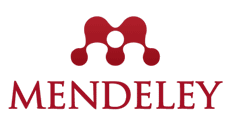THE INFLUENCE OF FINANCIAL MANAGEMENT BEHAVIOR ON THE FINANCIAL WELL-BEING OF FAMILY HOPE PROGRAM BENEFICIARIES IN PALETEANG DISTRICT, PINRANG REGENCY
Keywords:
Financial Management Behavior, Financial Well-Being, Recipients of Program Keluarga HarapanAbstract
The target beneficiaries of the Family Hope Program (PKH) are impoverished and vulnerable families or individuals. The distribution of assistance under the Family Hope Program in Paleteang District, Pinrang Regency, has not been effective or in accordance with the established guidelines. This study aims to assess the relationship between Financial Management Behavior and the Financial Well-Being of Family Hope Program beneficiaries in Paleteang District, Pinrang Regency, and to examine the impact of Financial Management Behavior on the Financial Well-Being of these beneficiaries in the same area. The research method used is a quantitative approach with an associative approach, employing field research through surveys or questionnaires. The data is analyzed using descriptive analysis, data quality tests, classical assumption tests, correlation tests, hypothesis tests, and simple regression analysis. The results of this study indicate that Financial Management Behavior has a positive and significant relationship with the Financial Well-Being of Family Hope Program beneficiaries in Paleteang District, Pinrang Regency. This is evidenced by a Pearson correlation value of 0.564 with a significance value of 0.000, indicating that the two variables have a moderate, positive, and significant correlation. Furthermore, Financial Management Behavior significantly affects Financial Well-Being, as demonstrated by a t-value greater than the t-table value (6.694 > 1.985) with a significance value of 0.000, which is less than 0.05.
References
Brown & Taylor. (2014). Household finances and well-being : An emipirical analysis of comparison effects. Journal of Economic Psychology.
Bureau, C. F. P. (2015). Financial well-being: The goal of financial education.
Ghozali, I. (2018). Aplikasi analisis multivariate dengan program IBM SPSS 25.
Lubis, E. F., & Zubaidah, E. (2020). Efektivitas Program Keluarga Harapan Dalam Penanggulangan Kemiskinan. Societas : Jurnal Ilmu Administrasi Dan Sosial, 9(2), 88–99
Maghfiroh. (2019). Pengaruh Financial Attitude, Financial Knowledge, dan Parental Income Terhadap Financial Management Behavior Dengan Love of Money sebagai Variabel Intervening (Studi Kasus pada Mahasiswa-Mahasiswi Perguruan Tinggi Negeri dan Swasta Di Kota Malang). Jurnal Riset Manajemen, 53(9), 16891699.
Mirza, D. S. (2011). Pengaruh Kemiskinan, Pertumbuhan Ekonomi, dan Belanja Modal Terhadap IPM Jawa Tengah. JEJAK: Jurnal Ekonomi Dan Kebijakan, 4(2), 102113.
Nurhayati, M. (2019). Pengaruh Perilaku Keuangan, Literasi Keuangan, Pengalaman Keuangan Terhadap Kesejahteraan Keuangan. Universitas Pembangunan Nasional Veteran Jakarta.
Pasapan, D. R., Ramba, D., Batara, M., Ridow, A., Kristen, U., Toraja, I., Ekonomi, F., Manajemen, P., & Dipa Makassar, U. (2023). Pengaruh Locus of Control Dan Financial Knowledge Terhadap Personal Financial Management Behavior Masyarakat Penerima Bantuan Pkh Kecamatan Tondon. Jurnal Entrepreneurship Digital , 56(1), 56–70.
Pawenang, & Supawi. (2016). Modul Perkuliahan Lingkungan Ekonomi Bisnis. UNIBA.
Riani, L. P., Fikri, A. A. H. S., Sholeh, M., & Supriyanto. (2023). Literasi Keuangan Kaum Millenial. Media Nusa Creative.
Satuti, A. W. (2015). Literasi keuangan pada masyarakat penerima bantuan Program Keluarga Harapan (PKH) di Desa Manduro Manggunggajah Kecamatan Ngoro Kabupaten Mojokerto. http://repository.um.ac.id/id/eprint/41914
Sugiyono. (2017). Metode Penelitian Kuantitatif, Kualitatif, dan R&B. Alfabeta.
Supriadi, I. (2021). Pengaruh literasi keuangan, pendapatan, dan perilaku keuangan terhadap kesejahteraan keluarga ibu rumah tangga di desa manurung kota malili.
Tang. (2017). The Love of Money, satisfaction, and the Protestant Work Ethnic: Money profiles among University professors in the U.S.A and Spain. Journal Business Ethics, 78(3), 117.
Xiao, J. J. (2015). Consumer Economic Wellbeing. Springer New York.
Xiao, J. J. (2016). Handbook of Consumer Finance Research. Springer International Publishing.








